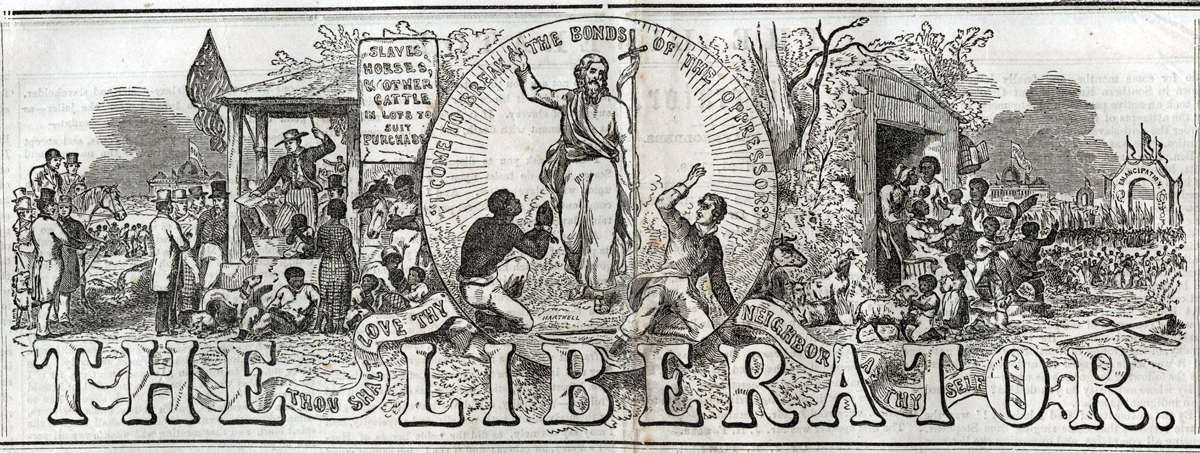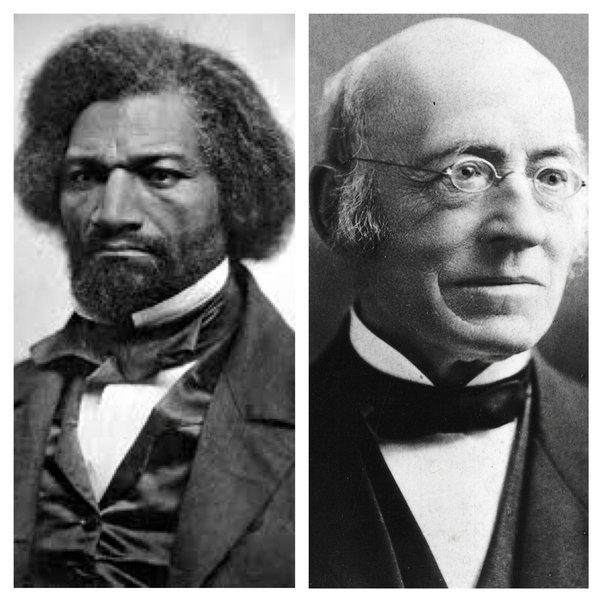The abolitionist movement took on different forms in their journey to emancipation. While maybe not as widely remembered as more violent methods, utilizing speech was also just as necessary to achieving their goal. William Lloyd Garrison was one of the leading voices in this form of abolition. Known for his anti-slavery newspaper The Liberator, Garrison spoke out vehemently against slavery.
Early Life
Born December 10, 1805, in Newburyport, Massachusetts to a sailor merchant father who deserted them when Garrison was only three. Garrison grew up in poverty, and was sent to live with a Baptist deacon until he was eight and struggled through apprenticeships with a shoemaker and cabinetmaker. At 13, he received an apprenticeship at the Newbury Herald as a writer and editor under editor Ephraim W. Allen.
After working for the Herald for seven years, Garrison was able to gather enough money to buy The Newburyport Essex Courant, renaming it to the Newburyport Free Press. Although, that paper went out of business within six months of Garrison's purchase. In 1828, he became editor and journeyman printer at the National Philanthropist in Boston. Until, he accepted an editor's position at Benjamin Lundy's paper, the Genius of Emancipation, which began Garrison's journey in the abolition movement.
Abolitionist
Jan 1, 1831, Garrison published the first issue of his own abolitionist newspaper,
The Liberator.
“I do not wish to think, or speak, or write, with moderation.… I am in earnest—I will not equivocate—I will not excuse—I will not retreat a single inch—AND I WILL BE HEARD,” said Garrison in his first issue.
The Liberator advocated for the immediate emancipation of slaves in the United States. He was continually criticized for his writings, and was even
tied and dragged through the streets of Boston with threats of lynchings for his writings and views. Garrison was a pacifist and advocated for non-violence against slavery. Instead, using morality and arguments about how much of a sin slavery was to slaveholders.
Garrison believed that the only way to end slavery was through moral persuasion, appealing to one's ethical principles to change their minds. This stance, along with beliefs that women should be involved with the American Anti-Slavery Society and the organization should not ally itself with a political party,
created a rift in the organization. One sect broke off to create the American and Foreign Anti-Slavery Society, that did not allow women. Another became the Liberty party, a group that was more politically inclined than what Garrison wanted.
Garrison was also the person to 'discover' Frederick Douglass and help him spread the message of antislavery. In 1841, Garrison heard Frederick Douglass speak about his life, and was able to convince the Massachusetts Anti-Slavery Society to hire Douglass to tour with Garrison and tell his life story to others. Douglass stopped touring with Garrison when he began his own paper,
The North Star, in 1847.
But, in 1851, Douglass wrote that the Constitution could be used as a weapon to fight against slavery. This angered Garrison as he vehemently believed the Constitution was pro-slavery. He then attacked Douglass in his paper, causing the pair to go back and forth fighting each other through their papers, destroying their friendship.
In the years leading up to the Civil War, Garrison
became more radicalized and less influential. He used
The Liberator to denounce events like the Kansas-Nebraska Act, the Compromise of 1850, the Dred Scott decision, even burning a copy of the Constitution at a rally in 1854. But he praised John Brown's attack on Harper's Ferry calling it "retribution" for slavery.
Garrison supported President Lincoln and even overcame his pacifist beliefs to support the Civil War. Seeing it as a faster way to free slaves than what he had been doing. He completely supported the Emancipation Proclamation in 1863, and ended The Liberator on Dec 29, 1865, once the war had ended. Garrison successfully published a new issue of the newspaper every week until its closing.
Impact
Garrison died on May 24, 1879, after getting to see his goal realized with the passing of the 13th Amendment, outlawing slavery. Garrison was one of the leading voices in the country on abolition, and continued to fight after achieving that. He fought for the
equality of African Americans and the women's suffrage movement.




No comments:
Post a Comment